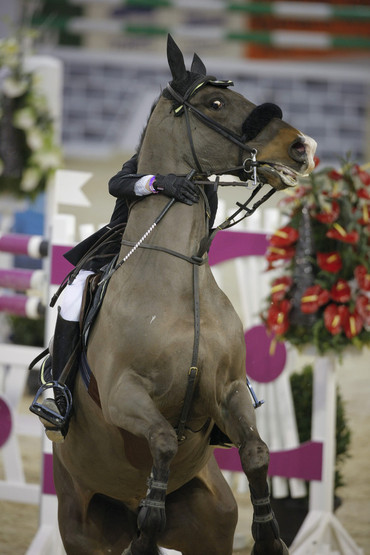Exuberant horses have many names across the globe: they can be sharp, sensitive, spunky, goofy, “cray” “chaud”, fizzy and “hot” transcends across the continents translated in to the local language as a universal “equestrian colloquialism”.
You ‘re all alone
Place a horse into the more unnatural habitat of a stable and he will do very well as long as he has friends and routine. Horses thrive on routine. Take a horse out of this and chances are you will create a nervous horse who is ready to flee at the first scary moment. He is a flight animal and survives by running from danger. He has spent 65 million years existing and evolving in this manner.
General advice will be to turn your horse out. Even if this means separate paddocks but close by to other horses. Horse have evolved to digest grass and eat eighty percent of their day. Grass and fibre takes a lot of chewing. This methodical movement means a horse in a natural environment may walk up to thirty miles in a day. Put a horse in a stable, restrict his movement and restrict his “grazing” habit and your horse may become hot to ride!
And so peaceful until….?
The competition environment can be a stressful place to be for both horse and rider. Sports psychologist Gary Diplock MP NLP DIPSPORTS PSYCHOL, commented on rider stress:
“It has been suggested that many of the “he/she has never done that before” moments are actually caused by the rider. Many trainers will tell their riders to “just think the transition” and that transition will occur. We have a thing called logic which comes into play when we want to complete an activity. When riding, we should expect things to happen when we ask, so why should we not expect a horse to pick up on any nervous tension we exhibit? Gary also advised to speak to a nutritionist to discuss your horse’s dietary requirements.
Nutrition can play a big part in behaviour and we spoke to leading supplement company Cavalor, and their nutritionist had their own take on “hot” horses:
“People today love their horse like their own children and want to take good care of them. This means sometimes people love their horses too much, when making up feeds, this translates into energy intake being too high for the work done. This has multifactorial consequences: over fed with too rich concentrates or just get too much for the activity the horse has to do = possible consequences such as laminitis, Insulin resistance and sometimes “hot” or “crazy”, so the horse get hard to handle and is no fun anymore.”
You blow a fuse…..?
Keeping routine is an excellent way to prepare for competition. We spoke to Ferenc Damen, Dutch international rider, who made a career as a “dealers rider”. Ferenc has also developed a formidable reputation as a jumping and dressage rider in the USA, Holland and the UK; riding horses perhaps four or five times and then competing at Small Tour or to 1.30m jumping classes. Ferenc can’t always use “routine” and familiarity to help him and his horse. So we asked what is his secret?
“I must always consider the horse and adjust myself to the horse. It does not matter what the ability of the horse, you must always be confident in your own ability (at your comfort level) and ride in what I call “open balance”. When I am training other people we take a few days before the competition to evaluate each session and I tell all pupils” you must ride for yourself and your horse’s education, always think about the next step, it is not all about winning that rosette. It is better to compete happily and give the horse a good experience at a lower level.”
And then you fall in love…
Whatever your level of riding, always work alongside people you can trust install confidence. These people do not need to be “the latest fashionable trainer” just honest reliable truthful eyes on the ground. Take good advice from a supportive nutritional company. Make sure that you use a company that has ongoing research and can apply the science to horses in a practical way. Finally, it is important to consider every aspect of your horse’s lifestyle including nutrition if you have some behavioural issues that may be related to his work load or food intake.
Text and photo provided by Cavalor.









